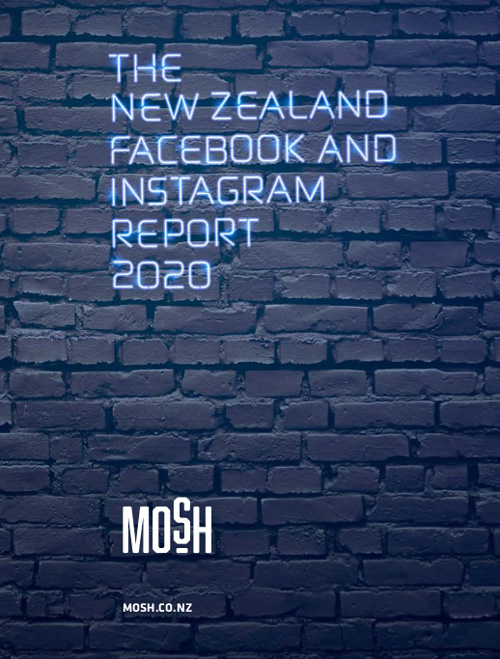A staggering 84% of internet users in New Zealand aged 16 to 64 use Facebook every month. And according to Mosh, a specialist Auckland agency that helps SMEs build their brand across social media, Facebook is the online equivalent of physical venues such as bars and pubs.
“You need to be in there if you want to build your brand through word-of-mouth,” says Julian Thompson, Head of Strategy and a partner at Mosh. He recommends sole traders and business owners create a Facebook page for their company.
“A page is separate from your personal account, and it’s very much about having a brand presence, as opposed to a personal presence,” says Thompson. “When you create a page for your business select the Brand option.

“Once you have a Facebook page you can unlock the business marketing section of the site and there is no doubt that for businesses, Facebook is a ‘pay-to-play’ social media site. Be prepared to invest $200 a month for paid advertising.
“Unless you are prepared to invest some money into the platform then there is little point if you want to use it to generate new business. For people who invest, then Facebook does offer a big bang for your buck.”
Thompson says people wanting to place adverts on Facebook and Instagram – both are owned by the same company – should go to Business.facebook.com, head to Business Manager and then Ads Manager “…then you can manage paid promotions properly”.
For people who invest, then Facebook does offer a big bang for your buck…
“And that’s where you will start to see results,” says Thompson. “It is fairly complicated, but there are lots of online resources that anyone can use to learn the system. Using it properly is the key to getting results.
“The ad targetting side of Facebook is mind-boggling because they have so much data on its users. Part of the reason Facebook has been in the news lately is due to the data it has. But it means advertisers can target users very specifically.”
Thomson recommends advertisers ignore Facebook’s blue boost button “…that’s not the way to get results”.

In its 109-page New Zealand Facebook report, the firm says that globally more than 80 million SMEs have a business page on the platform.
According to Nielsen Online data, Kiwis have increased the number of hours they spend on Facebook from 6 hours and 33 minutes a month in December 2013 to 9 hours and 57 minutes in June 2019,
“These days,” says the Mosh report. “Brands must do two things to improve their reach:
- Use Facebook advertising and/or
- Create content that followers really, really want to interact with
“From our research, Facebook is the most important social media platform for businesses in New Zealand,” says Thompson.
Facebook is the most important social media platform for businesses in New Zealand…
“You don’t have to post content on the site more than once a week. What is important is to understand what your audience will appreciate. Put yourself in the shoes of your customers and clients.
“In financial services there is a whole bunch on content ideas from budgeting advice, sharing market insights, and economic outlooks…
“And if you can’t write it then some of it can be shared from what other people publish. But rather than just share a link to another source, try to add a comment – add some value for your readers and followers. Put your perspective on it. Sharing other people’s content is a valid marketing strategy.”
The ad targetting side of Facebook is mind-boggling because they have so much data on its users…
If you think getting page likes will help your business, then think again says Thompson.
“The relevance of page likes has steadily decreased and Facebook has even changed the layout of its pages so the ‘like’ button is less obvious,” he says.
“What we generally say is that you just need enough likes to be credible, you need more than 10 otherwise people won’t think you are a real page.
“But once you are at a level that makes sense for the size of your business then it is absolutely the last thing you should be worrying about.”
From his firm’s research, Thompson says only 6% of people who like a page will react to, or see, new posts on the company’s page.
“That’s what’s called organic reach, it’s free,” says Thompson. “But the reality is you have to pay to reach the people you want. Pay to reach the right people and pick up page likes organically.”





